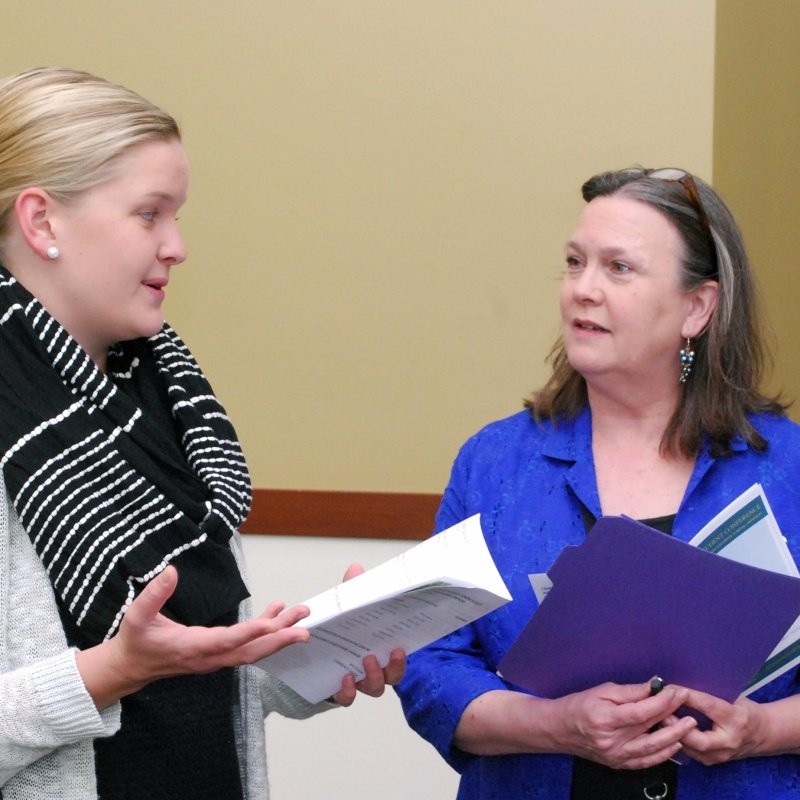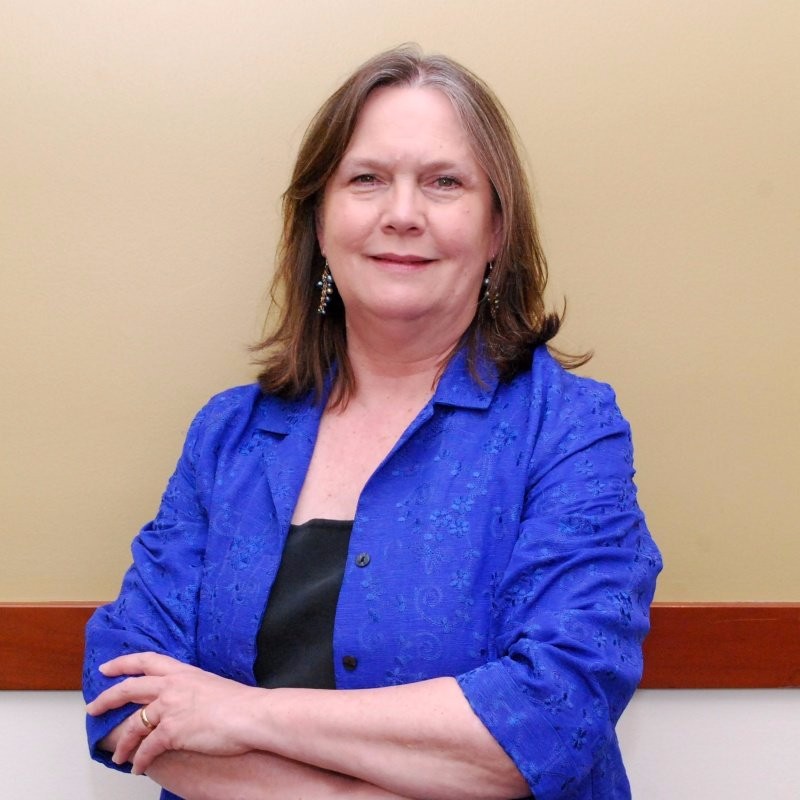Carley Dubinski looked expectantly at her audience. The DePaul undergraduate economics major had just finished presenting her research paper at the Student Economic Conference hosted by Driehaus School of Business, detailing her findings on the effects of alcohol on workers. It was the first research paper Dubinski had ever presented to an audience, and she was unsure of its impact.

"I was just looking for some kind of feedback," Dubinski said at the conference on May 8. "I'm just learning econometrics and there's a lot I don't know. But I was so glad to share my research. It was great to share my work and to see what people thought about it."
Dubinski's words are Laura Owen’s hopes come true. Owen, associate professor of economics in the Driehaus College of Business, heads the university's undergraduate economics program. (See Laura Owen's faculty bio here.)
Owen coordinated the inaugural annual Student Economic Conference this spring with the help of a program committee featuring economics professors John F. Berdell Gabriella Buccci and Rafael A. Tenorio. The conference had 30 student presenters, and that speaks to Owen's egalitarian philosophy when it comes to teaching economics. For Owen, economics is not just the purview of the data-driven economist. It's also a pathway for students to understand the world in which they live.
"When teaching economics principles classes, you're often teaching the only economics class a student will take," says Owen. "I always focused on economic literacy. I believe for students to make good decisions about what’s going on in the world, no matter their discipline, it's better to have a basic understanding of how the economy works."
Passion for Studying Economics Blossoms
As a teenager living in San Antonio, Texas, Owen was selected for a National Science Foundation summer program. She spent six weeks studying the basics of economics at St. Olaf College in Minnesota.
 "I was very intrigued by the theoretical nature of economics and thinking about modeling human behavior," says Owen. "I had not been exposed to that type of thinking before and I knew that I wanted to study it."
"I was very intrigued by the theoretical nature of economics and thinking about modeling human behavior," says Owen. "I had not been exposed to that type of thinking before and I knew that I wanted to study it."
After high school, Owen went on to undergraduate studies in economics at Vassar College and eventually earned her masters and PhD in economics from Yale University. That's where she began her research specialty — American economics history in the labor market circa early 20th century.
Her research has been published in major academic journals, including the Journal of Economic History. Currently, she's examining patterns of part-time employment in the United States and Canada and its costs to employees between 1955 and 1975.
Owen says she was particularly inspired by her professors to continue her studies in economics and eventually she decided to teach in the field. Yet, even though she was passionate about the subject, she found that as a woman she as an "oddity," in her classes and within academia.
"In graduate school out of 50 professors there were only two women," she says. "And in a graduate class of 24 students there were only four women. I suppose it was a challenge, but I had incredibly supportive professors and I made it through."
DePaul's Economics Program Distinction
In 1990 Owen arrived at DePaul for her first teaching assignment and has been here ever since. Owen says it's the diversity of DePaul's faculty that distinguishes the university's program from others.
"We have a faculty with a very broad range of interests, and a lot of different viewpoints are represented," says Owen. "We also have a policy orientation to our program (and) a more empirical orientation to the research of our faculty, and this filters down into their teaching."
Back at the Students Economics Conference, Owen's quiet manner and soft-spoken voice belied her excitement. She was surprised so many students participated in the conference and was overjoyed that students at the conference actually had an audience in which to present their papers.
"I am pleased with our first run of the conference," she says. "Several students have thanked us for providing a forum for them to present their work. It's gratifying that they are leaving with a positive view of this experience and it convinces me that we should continue offering this opportunity to future students.
Want to learn more about studying economics at DePaul?